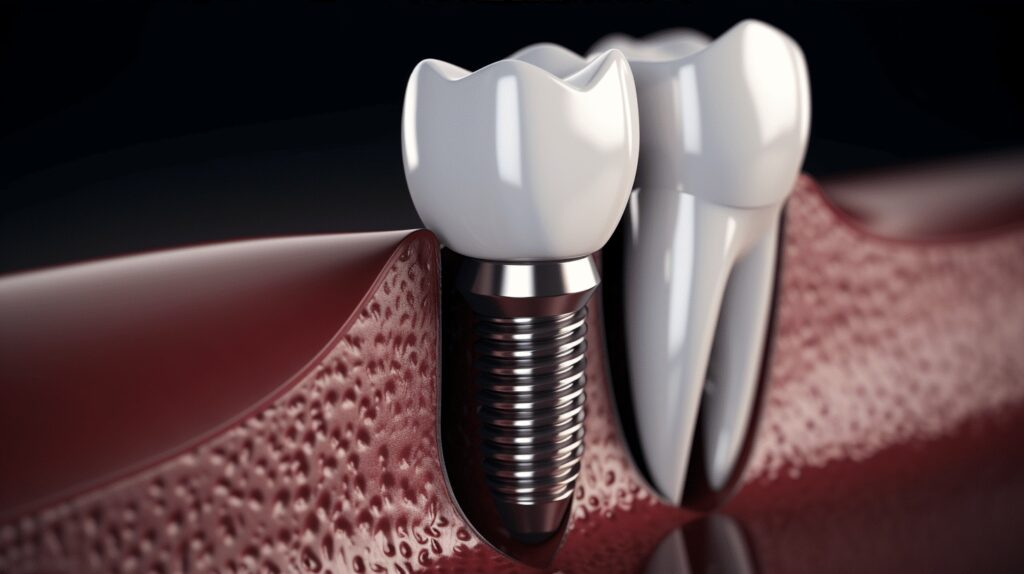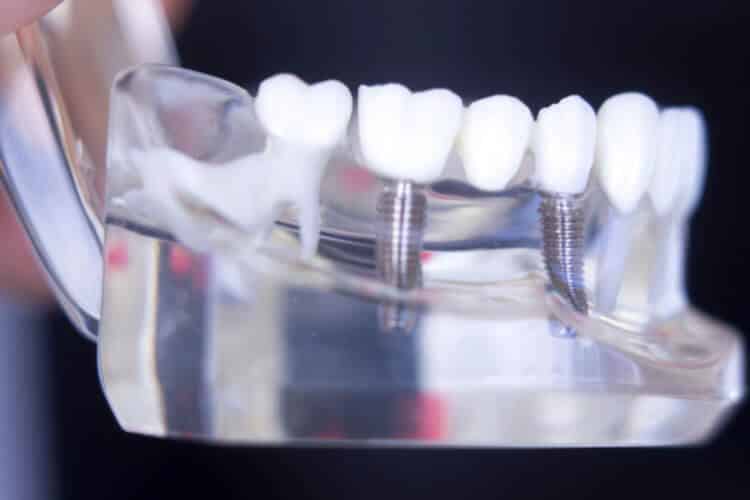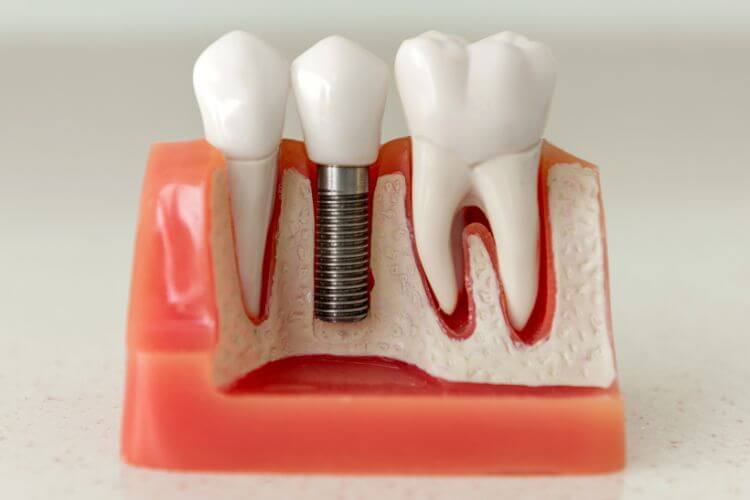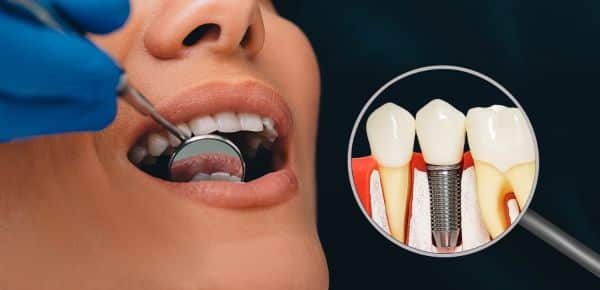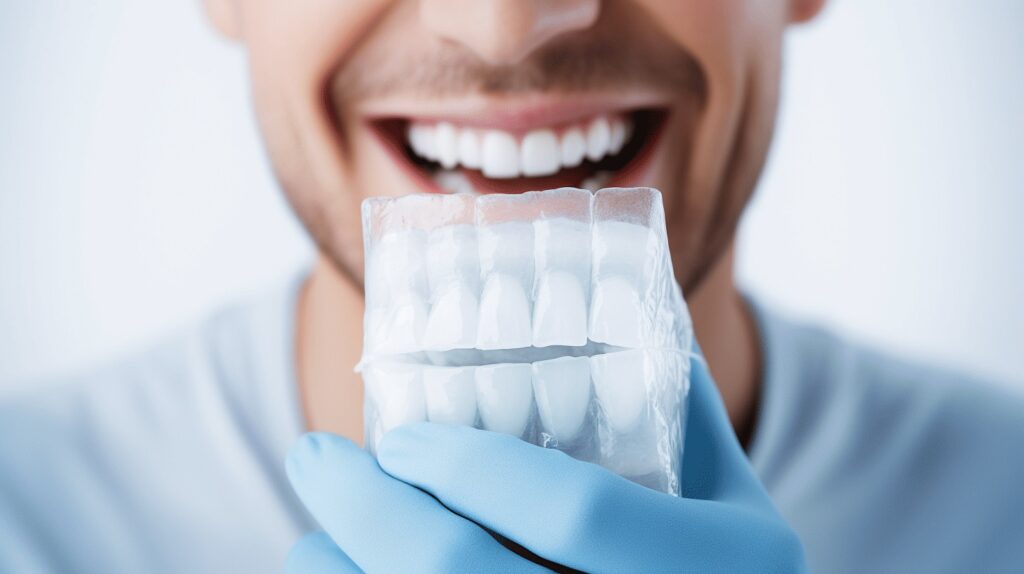Hello, fellow smile enthusiasts! 😊
Have you ever found yourself ducking behind the camera because you’re too self-conscious to flash your pearly whites?
You’re not alone. A fantastic smile is more than just a confidence boost—it’s also an integral part of our overall health.
That’s where Dental Implants come into the picture. But what are they exactly?
In our pursuit of beautiful smiles, we may come across several terms we are not familiar with, like ‘Endosteal Implants,’ ‘ Subperiosteal Implants,’ ‘Implant-Supported Dentures,’ ‘All-on-4 Implants,’ each on their own journey of mystery.
🕵️♀️ Confusing, isn’t it?
Join us as we demystify these terms, bridge the gap between you and your dream smile while dabbling in the fascinating world of Dentistry.
Ready to embark on this incredible journey with us? Say ‘cheese,’ and let’s dive in!
Table of Contents
Definition of Dental Implants
When it comes to talk about a revolutionary step in dentistry that offers a practical solution for people with missing teeth, we can’t help but highlight the significance of dental implants.
Now, you could be wondering what exactly are dental implants, right?
Straightforwardly, dental implants are artificial tooth roots that acts like a pro in providing a strong foundation for fixed or removable replacement teeth or dentures.
🦷 They are surgically nestled into the jawbone, ensuring a secure fit for those gleaming new pearly whites.
Still not clear?
Picture this, imagine an anchor holding a ship in place, that’s what dental implants do. They provide a strong and sturdy base that holds your artificial teeth or dentures steady and strong, just like your natural teeth.
So, why do people opt for dental implants?
- They look and feel like natural teeth. You smile, eat and talk without any discomfort or fear of your teeth slipping away.
- Match with your natural teeth. They can be designed to match the color and shape of your natural teeth, making them practically indistinguishable.
- Say goodbye to cavities. Unlike natural teeth, implant-restored crowns are not susceptible to cavities. However, you still need to maintain regular dental habits for the health of your gums.
However, it’s important to remember that while dental implants are effective, they aren’t suitable for everyone.
A good candidate for dental implants must have healthy gums and enough bone to support the implant.
“Well begun is half done,” they say, and with the right knowledge in your arsenal, you’ll be more than ready to embark on your dental restoration journey. Dental implants could be your ticket to a healthier mouth and a more confident smile.
But remember, always consult with your dentist to understand what the best solution for you is. 😊
Endosteal Implants
Ever wonder why endosteal implants are the most prevalent type of dental implant?
The secret lies in their proficiency to provide sturdy, reliable solutions to missing teeth while being minimally invasive.
These little miracles, typically made of titanium, resemble small screws or cylinders and are placed directly into the jawbone, making them a cornerstone of modern dental restoration.
Let’s dive deeper into why they’ve captured the trust of dental professionals worldwide.
Firstly, endosteal implants offer some fantastic benefits that are hard to ignore.
These include:
- Stability for prosthetic teeth: Endosteal implants are affixed directly into your jawbone, creating a solid and secure base for false teeth. This anchorage ensures your prosthetic teeth feel and function just like your natural ones.
- Preservation of jawbone health: When teeth are missing, your jawbone can begin to deteriorate. By installing endosteal implants, we can encourage new bone growth, increasing the overall strength and health of the jawbone.
- Visually pleasing results: Our endosteal implants, coupled with expertly crafted prosthetic teeth, ensure a natural-looking finish that complements your smile.
Now, these benefits don’t come without the necessary skills and precision on our part.
As a professional in the field, we credit our success with these implants to our meticulous planning process.
As the first step, we thoroughly evaluate your oral health to determine if endosteal implants are suitable.
Using advanced imaging techniques, we determine the perfect size and placement of the implant to ensure a seamless fit.
Our dedication towards creating an individualized patient experience, paired with the undeniable advantages of endosteal implants, show why they’re at the forefront of dental restoration.
With endosteal implants, we’re not just restoring your smile; we’re enhancing your quality of life.
Subperiosteal Implants
Let’s take a chance to talk about a special type of dental implant called Subperiosteal Implants.
They’re not as common or widely spoken as their endosteal counterparts, but they hold an extremely vital place in the dentistry realm. Truly, their importance cannot be overemphasized. If you’re thinking “why”, then you’re about to find out!
Now, let’s dip our toes in a bit further to understand what subperiosteal implants really are.
Essentially, they’re a type of dental implant that is placed right underneath the gum but right above the jawbone.
This unique positioning makes them a ray of sunshine 🌞 for patients with a shallow jawbone, allowing them to still benefit from the advantages provided by dental implants.
Here’s a little more clarification: Most dental implants require one to have a sufficiently deep jawbone that the implant can anchor onto.
But what happens when there’s not enough jawbone depth, and the patient can’t undergo a bone augmentation procedure?
That’s where subperiosteal implants come in, providing a wonderful solution!
Here are a few points that further highlight the benefits of subperiosteal implants:
- Suitable for shallow jawbones: They’re a godsend 🙌 for patients who don’t have enough jawbone depth.
- No need for bone augmentation: Patients can evade the potential risks and complexities associated with bone augmentation.
- Highly Effective: Despite their unique positioning, subperiosteal implants are just as effective as traditional implants in terms of function and stability.
Subperiosteal implants, although less common, hold an irreplaceable value in specific dental conditions and inadequate jaw structures.
Subperiosteal implants are an excellent example of how science and technology have opened up many avenues in healthcare.
They allow us to create tailored solutions that can meet the unique dental needs of different patient groups. So, if you’re one of the many people with a shallow jawbone, fret not.
There’s a dental implant solution perfectly suited for you – and it’s called a subperiosteal implant! Standing ovation please 👏!
These implants are revolutionizing the way we approach dental health, making smile restoration simpler and more accessible than ever before.
So, isn’t it time we start giving subperiosteal implants the recognition they deserve?
Implant-Supported Dentures
If you’ve ever wished for a more stable and secure solution for missing teeth, you’re in luck!
Let’s talk about implant-supported dentures.
This brilliant technological innovation is transforming smiles globally. Implant-supported dentures, as the name suggests, are dentures supported by and attached to dental implants.
They’re not as scary as they sound; think of it as combining the reliable stability of dental implants with the flexibility of dentures! 😊
Here’s what makes them such a fan favorite:
- Less movement: Unlike traditional dentures that might slip and slide, implant-supported dentures are securely anchored to dental implants embedded in your jawbone. It’s almost like having your natural teeth back. 🦷
- Lower bone loss risk: Dental implants help stimulate your jawbone, reducing the risk of bone loss often associated with traditional dentures. That’s a win for your oral health in the long run!
But, implant-supported dentures come with their set of considerations:
- Time-consuming process: The procedure to get these dentures requires multiple visits, which can be a concern for people with a busy schedule.
- Potential higher cost: As you might expect, advanced technology paired with long-lasting results might come with a higher initial cost compared to traditional dentures.
Just as our smiles are unique, so should be our dental solutions.
While implant-supported dentures provide fantastic benefits, they might not be the right choice for everyone.
We encourage you to discuss your options with your dental health professional to choose the perfect fix for your missing teeth.
With their expert advice, you can confidently step into a future of bright and beautiful smiles!
Let’s remember this: Your dazzling smiles power-up our passion for dentistry! And for this reason, we are here, working tirelessly to provide the best possible dental solutions.
After all, your smile is our reward! 😁
All-on-4 Implants
Smiling is universal in every language and culture, and it’s often said that a smile is the best thing you can wear.
But for many people, smiling isn’t as easy or carefree as it should be.
Missing teeth can make a simple act like smiling into a source of self-consciousness and distress. All-on-4 implants might just be the solution you’ve been waiting for.
Imagine a solution efficient enough to replace an entire arch of teeth with just four implants.
Sounds too good to be true?
It’s all part of the genius concept of All-on-4 implants.
They aren’t just extremely efficient; they’re a cost-effective solution for those looking to smile confidently once again.
Here is what all the buzz is about:
- Utility: All-on-4 implants do exactly what the name suggests. They function using just four implants that support a complete arch of teeth. This allows for less invasive procedures and quicker recovery time for patients.
- Economical: One of the biggest hindrances in getting dental implants for many is often the cost. Luckily, All-on-4 implants offer a cost-effective long-term solution, only requiring four implants for a full set of teeth.
- Time-Efficient: Traditional implants can take months to heal completely. With All-on-4 implants, you’re looking at significantly less recovery time.
- Durability: All-on-4 implants don’t compromise on durability despite being cost and time efficient. Made with premium-grade material, these implants are made to last, providing comfort and functionality.
“A smile is a curve that sets everything straight.” – Phyllis Diller
So, if missing teeth have stolen your smile, it’s time to take back control.
Opting for All-on-4 implants means opting for a complete, cost-effective, and efficient teeth restoration solution.
After all, life’s too short for anything but bright, radiant smiles.
Choosing the Right Implant Option
If you’ve lost a tooth, one of the best ways to reclaim your radiant smile and self-confidence is through dental implants.
Nowadays, there’s a wide variety of implant options available.
However, making the right choice is crucial to get the desired results.
In this section, we’ll explore some crucial elements to consider when choosing the right implant option for you.
To start, many factors can influence your decision; among them:
- Your dental health: Not every patient is a candidate for every type of implant. Factors such as bone density and oral health can impact which implant options are viable for you.
- Aesthetics: Some people desire a highly aesthetic result, especially if the missing tooth is visible when they smile. Certain implant types provide better aesthetics than others.
- Cost: Implant costs can vary considerably based on the material used, the complexity of your dental situation, and your location.
- Longevity and durability: While all implants are designed to be durable, some materials and designs are known to last longer than others.
Once you understand the factors involved in choosing the right implant, the next step is exploring the implant options available to you.
On the one hand, there are traditional implants, often considered the gold standard due to their proven longevity and high success rates. They tend to feel and look the most natural, but they are also the most invasive option.
On the other hand, we have mini dental implants. They are less invasive and can be a good option for those with compromised bone density. They’re also often more affordable than traditional implants but may not last as long.
Also, there’s the All-on-4 implant method, particularly suited for those who have lost all their teeth on the top or bottom row. These implants provide sturdy support for a row of prosthetic teeth with just four implants, hence the name.
“Choosing the right tooth implant is not merely about aesthetics. It’s also a decision that could impact your future dental health.”
The decision to go ahead with dental implants is a significant one.
Comparing options and understanding which method best suits your aesthetics, budget, and health needs will go a long way to ensure a successful outcome.
Always consult with your dentist or oral surgeon, as they can provide expert advice tailored to your specific situation.
Here’s to you, reclaiming your smile and confidence with the right implant choice!
Factors to Consider
There’s no denying it, deciding on dental restoration treatments is a big step.
And, as exhilarating as it is to envision a revamped, healthy smile, it’s also crucial to step back and objectively evaluate certain elements before diving in.
We’ll play tour guide and walk you through the essential factors you should consider.
1. Bone Quality and Quantity
Your bone structure plays a critical role in the success of treatments like dental implants. Reliable bone density can securely support implants, providing a stable base. But don’t sweat it, even if you’ve lost bone over time, options like bone grafts can literally bridge the gap. So, bony issues? We’ve got you covered! 💪
2. Gum Health
You see, gums are the unsung heroes of the oral kingdom. They are the essential gatekeepers to the structure of your teeth. They nestle your teeth snugly and ward off bacteria. Treatments are more successful if your gums are free of diseases and inflammation. Make sure to invest some time in gum-care if you’re planning a restoration procedure. Every day is a good day to gum up! 🍬
3. General Health and Medical Conditions
Albeit not immediately evident, your overall health does impact your dental restoration journey. Conditions like diabetes or heart disease can affect healing and recovery post-treatment. Also, prescriptions can interact with local anesthesia. So, it’s always best to keep your dentist in the know about any health conditions you might have before moving forward. Doctor’s orders! 🩺
4. Budget and Insurance Coverage
Let’s be real, dental procedures can be costly. And while we would love to ignore the price tag, it’s an important aspect to deliberate. Thoroughly check your insurance cover to see what part of the procedure they will fund. It’s always a good idea to communicate your budget concerns with your dentist. Every tooth counts, but so does every penny! 💰
There you go, one step closer to making an informed decision.
Remember, the path to a gorgeous smile brimming with health requires careful consideration.
Not to worry! With patience, preparation, and partnership with your dentist, you’re in good hands.
How’s that for something to smile about? 😊
Consultation with a Dental Professional
When it comes to maintaining your beautiful smile, consulting with a trusted dental professional is crucial.
They are the individuals with the knowledge, experience, and skillset to evaluate your oral health needs thoroughly.
Whether you’re looking to improve your daily oral hygiene routine or considering more invasive procedures like dental implants, establishing an open line of communication with your dentist can make all the difference in your oral health journey. 😃
But why is a consultation with a dental professional so important? Let’s explore:
- Personalized Care Plan: Every individual’s oral health condition is unique, requiring distinct treatment methods. During a consultation, your dentist will assess your needs and recommend the best course of action tailored to you.
- Preventing Future Problems: Regular consultations help monitor your oral health and detect potential issues early. This prophylactic approach can save you from extensive damage and costly treatments down the line.
- Professional Advice and Guidance: Navigating the plethora of oral care information available online and in stores can be overwhelming. A dental consultation can help clear up confusion and provide you with expert advice based on science and experience.
- Reassurance and Confidence: For those of us who get a little anxious about dental procedures, consultations can ease fears by offering a clear understanding of what to expect, the benefits, and the potential risks involved.
One of the prime examples of a situation where a dental consultation becomes integral is deciding if dental implants are the right option for you.
A dental professional can evaluate your specific oral health needs and recommend the most suitable implant option for you.
This personalized advice hinges on various factors: your oral hygiene, bone density, overall health, and preference, among others.
Keep in mind, great oral health is not a destination; it’s a journey. And on this journey, your dentist is your trusted guide who helps you navigate through it all.
So, why not schedule your next consultation today? Give yourself the gift of a healthy smile that radiates confidence. Trust us; your teeth will thank you!
Conclusion
With so many dental implant options available, it’s essential to choose the one that best meets your unique dental needs and lifestyle.
At Wilshire Smile Studio, we specialize in providing individualized dental care with the highest standards of professionalism and expertise.
Our dedicated team is ready to guide you through every step of your dental implant journey, from initial consultation, selecting the right type of implant, to thorough aftercare.
Remember, the perfect smile is not just about aesthetics; it also enhances your oral health and overall well-being.
Don’t compromise your dental health by delaying or overlooking necessary treatments. As the saying goes, ‘A smile is the prettiest thing you can wear.’ So, let’s set a course for your ultimate dental health and gift you the radiant smile you deserve. 👍🙂
Overall, the key takeaway is that dental implants are a revolutionary solution for restoring lost teeth, and they can significantly enhance the quality of your life.
When it comes to dental implants, always trust a proven expert with a stellar reputation—trust the team at Wilshire Smile Studio!
Secure your oral health today by booking a free consultation with us online or calling (323) DENTIST (323-336-8478)
Frequently Asked Questions
1. What are the different types of dental implants available?
There are several types of dental implants available, including endosteal implants, subperiosteal implants, and zygomatic implants.
2. What is an endosteal implant?
An endosteal implant is the most common type of dental implant and is placed directly into the jawbone. It is typically made of titanium and provides a strong foundation for artificial teeth.
3. What is a subperiosteal implant?
A subperiosteal implant is a type of dental implant that is placed on or above the jawbone, but below the gum tissue. It is used when there is not enough healthy natural jawbone to support an endosteal implant.
4. What are zygomatic implants?
Zygomatic implants are a specialized type of dental implant that are used when there is insufficient bone in the upper jaw to support traditional implants. They are anchored in the cheekbone, or zygomatic bone, instead of the jawbone.
5. Which type of dental implant is best for me?
The type of dental implant that is best for you depends on various factors, including the amount and quality of available jawbone, your overall oral health, and the specific requirements of your dental restoration. Your dentist will evaluate your situation and recommend the most suitable type of dental implant for you.


